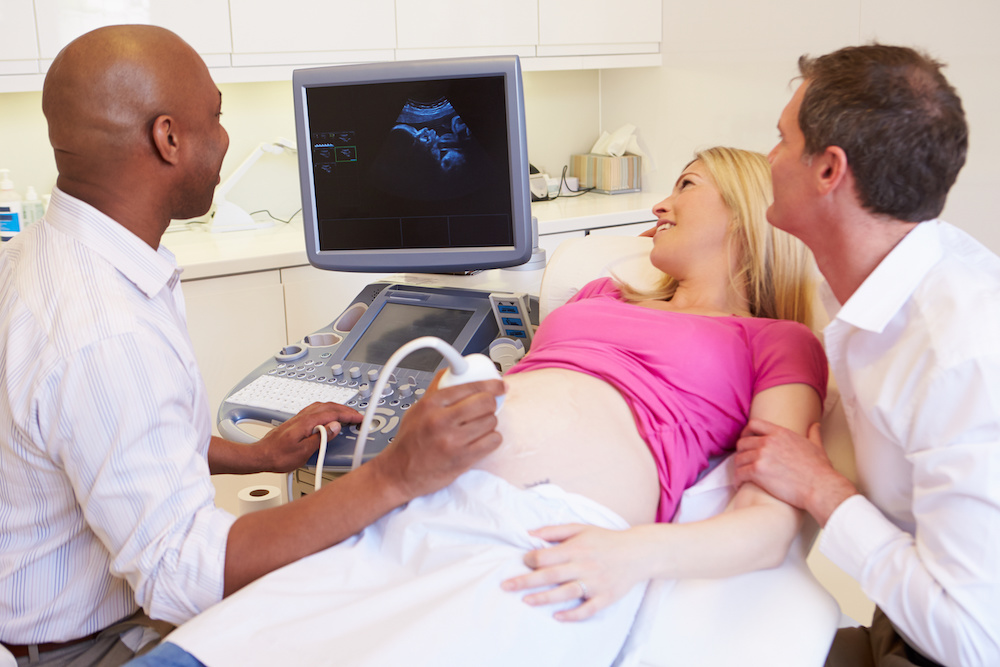
What can you expect during an IVF pregnancy, and how is it different than an unassisted pregnancy?
Expert:Daniela Anne Carusi, MD, MSc, Director of General Gynecology and Surgical Obstetrics at Brigham and Women’s Hospital
Is IVF pregnancy different?
Women who get pregnant through in vitro fertilization will be closely monitored by their fertility doctor during their first trimester.
- About two weeks after egg retrieval, your doctor will schedule a blood test to measure the level of the pregnancy hormone hCG. After a positive result, your doctor will likely keep you on progesterone and estrogen hormone support. This may be in the form of injections, vaginal suppositories, or gels. For the first few weeks of your pregnancy, your doctor will monitor your hCG levels to make sure they are rising. Very high hCG levels can be a sign of a multiple pregnancy.
- Approximately two weeks after a positive pregnancy test, an ultrasound will show the number of embryos as well as the health and viability of the pregnancy.
- After the eight or ninth week of pregnancy, patients “graduate” from infertility care. Unless there are known high-risk issues, most IVF patients can see a general obstetrician moving forward.
Continuing care for IVF pregnancies:
- At 9-10 weeks, your doctor can stop the progesterone and estrogen hormones. At this point, the placenta can support the pregnancy without supplemental hormones.
- At 11 weeks, your doctor will likely offer genetic screening for Down’s syndrome and related conditions at about 11 weeks. This applies even if the embryos were screened prior to being transferred to confirm that they have normal chromosomes.
- At 18-20 weeks, expect to have a survey ultrasound to review the baby’s anatomy. Some types of IVF, such as Intracytoplasmic sperm injection, may be associated with a slight increase in physical abnormalities in the fetus.
- During the second half of your pregnancy, both the cause of your infertility and results of exams up to this point will guide your care. If doctors find a fetal abnormality, your doctor will likely advise a consultation with a maternal fetal medicine or pediatric specialist. Patients with twins or multiples will have extra ultrasounds in the second and third trimester to confirm the normal growth and well-being of each baby.
Are risks with an IVF pregnancy different?
Once your doctor has confirmed a viable pregnancy, most IVF pregnancies will proceed uneventfully. However, as in any pregnancy, women who conceive using IVF may develop complications, and they may be at an increased risk for some conditions.
- Preeclampsia: Patients with fresh embryo transfer are at increased risk for preeclampsia. If there are multiple preeclampsia risk factors—such as advanced maternal age, polycystic ovary syndrome or obesity—then you should discuss starting baby aspirin at the end of the first trimester to prevent preeclampsia. Patients who are carrying multiples or who have hypertension should also consider taking baby aspirin.
- Delivery issues: You should discuss with your obstetrician if you are eligible for labor and a normal delivery, or if you will need a C-section. If you know that you have uterine factor infertility, you need to talk about delivery issues with your obstetrician, particularly if you have had surgery to the uterus. Women who have had extensive surgery—such as the removal of large fibroids—may have to schedule a cesarean to avoid labor.
- Placenta previa: Women who have had surgery or scarring inside the uterus can run into problems with delivering the placenta. The placenta should be carefully examined during pregnancy to detect any issues. Women who conceive with IVF are at increased risk for placenta previa – a condition where the placenta sits over the cervix. Most cases of placenta previa resolve without issue. If the placenta does not move, you will be required to have a c-section.
- Gestational diabetes: Patients whose infertility is due to polycystic ovarian syndrome or obesity should receive an early screening for diabetes. Even if you test negative, expect the test to be repeated by 28 weeks. Women with risk of gestational diabetes should meet with a nutritionist or work on a diet and exercise program to manage weight gain and blood sugar levels.
- Fetal growth restriction: Patients who have undergone a fresh embryo transfer are at increased risk for growth restriction. Therefore, extra ultrasounds will be performed to monitor the baby’s size and well-being. This is also true for older moms (over 35), especially after 40.
Pregnancy is always an exciting time, and perhaps especially so for those who have faced difficulties conceiving. Women who have struggled to get pregnant may feel apprehensive about sharing the good news. It’s up to you and your partner to decide how and when you’re comfortable telling friends and family.


I’m interested